Micro herbs, Viennese sausages, hospitality on the hustings and lemons at the Prado
A menu of delights, and one disappointment
Hello Lemonistas,
Welcome to your latest edition of The Lemon Grove, in which we look at ways of growing micro-herbs with a machine used in restaurants, commercial kitchens, cruise ships and in the homes of the rich. I’ve just planted some micro fenugreek and rocket seeds in a dish on windowsill as start growing my own again at home - more on that later.
We also report on the sausage stands of Vienna seeking cultural recognition from UNESCO, and the work of a master Spanish painter with a rare work on view at Madrid’s national art museum, Prado.
Best wishes and thanks for reading!
Bruce
Micro herbs with Jason Hirst of Evogrow
Listen into my chat with Jason Hirst, managing director of micro-herbs growing systems manufacturer Evogrow, whom I met at a recent event at the National Institute for Agricultural Botany (NIAB) in Kent, England.
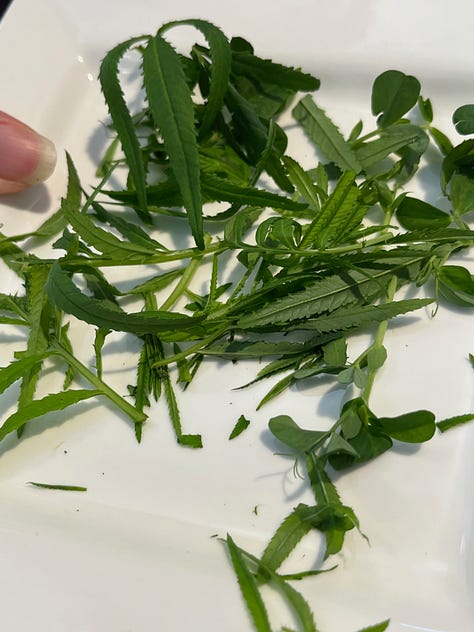
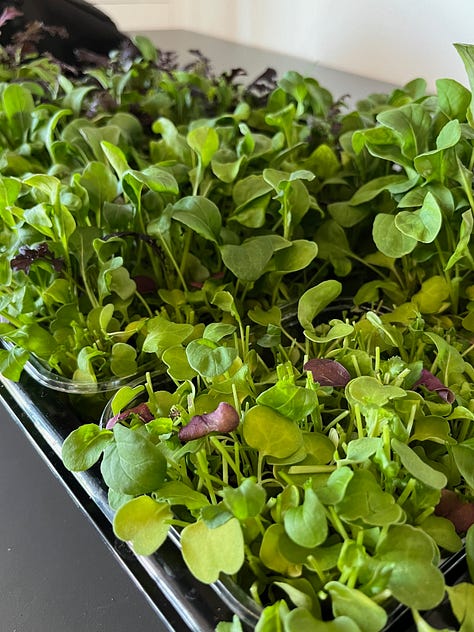
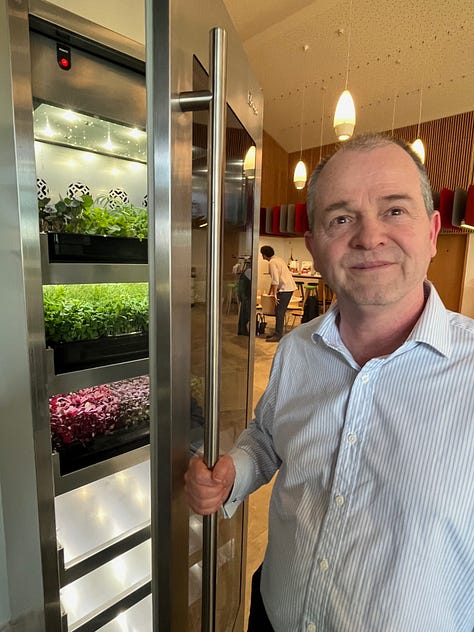
Viennese sausages seek UNESCO cultural approval

Serving hunger-busting and flavourful Viennese sausages across the city, a group of sausage-stand owners have teamed up to lobby the UN agency UNESCO to recognise their foods as part of Austria's 'intangible cultural heritage'. As the son of a Viennese mother, I have visited the city many times and always make room and time for a Bratwurst (fried sausage, lightly fried, a Käsekrainer (a coarse ground sausage with bits of cheese) or perhaps a Drepreziner (lightly smoked and flavoured with paprika). And whichever sausage I opt for, I get the lightly sweet white rolls known as Semmels, fries and a dollop of sweet mustard and horseradish. A meal for under Euro10, including pickles, sauce and a beer, is good value during the global cost of living crisis.
While around 180 'Würstel' stands remain open, they are under intense pressure from globally popular fast food joints serving pizza, kebabs, hamburgers, and even sushi.
Fourth-generation stand owner and organiser Patrick Tondl of Leo's sausage stand, and an organiser for the Association of Viennese Sausage Stands, says these places are community hubs where all members can spark conversations and exchange ideas, whatever their background.
UNESCO has my vote for Würstel stand recognition on its Cultural Heritage List!
Here are five of my favourites Würstel stands:
Bitzinger's sausage stand at Albertina
Albertinaplatz
1010 Vienna.
Click here for more details.
Bitzinger's sausage stand at Giant Ferris Wheel
Gabor-Steiner-Weg
1020 Vienna.
Click here for more details.
Sausage stand Zur Oper
Kärntner Straße 42
1010 Vienna
Sausage stand "Zum goldenen Würstel"
Spiegelgasse 1/Graben
1010 Vienna
Kaiserzeit Sausage Stand
Augartenbrücke/Obere Donaustraße
1020 Vienna
Click here for more details.
Atomic blast for food safety
Nuclear energy is a divisive topic with many seeing this solely as the cause of health problems rather than a means of preventing them. With this in mind, I have written an article for iGlobeNews about how two United Nations agencies, the International Atomic Energy Agency and the Food and Agriculture Organisation, are using nuclear techniques to boost food quality and reduce foodborne diseases.

This is timely because hundreds of people up and down the UK are recovering from a severe outbreak of food poisoning which has been linked to bacteria E.coli and a brand of nationally distributed, pre-packed salad leaves. Many people have spent time hospitalised in intensive care, and many more at home locked inside their bathrooms! As a developed nation, the UK has strict food safety laws but still reels from foodborne illnesses.
Food safety is a critical aspect of public health that often goes unnoticed until a problem arises. Poor food safety practices can lead to severe health consequences, economic losses, and a diminished quality of life. Understanding these dangers is essential for both consumers and food industry professionals. Read the article here.
Comment: Hospitality deserves better
With just over two weeks to go before the UK electorate heads to the polls to choose their preferred candidate who might go on to be part of the next government, I listened in to six hopefuls hoping to become a Member of Parliament for my home town. Once seen as the pinnacle of public service, the MP brand has been tarnished by decades of mismanagement, sex scandals and parties, futile wars - including one on culture and the BBC, dodging questions, and finally, giving us five prime ministers in eight years, including three since 2022.
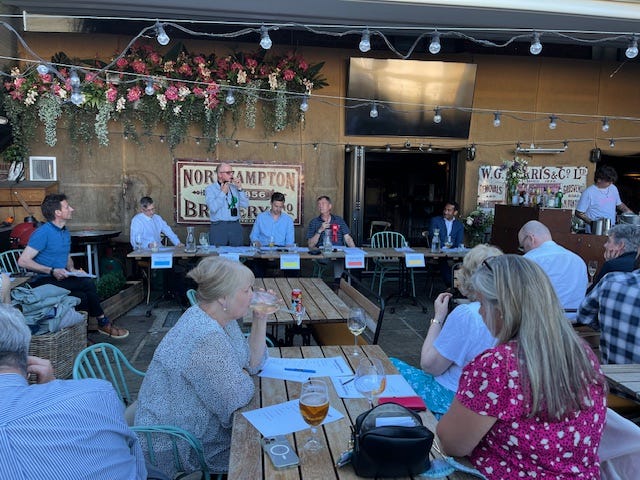
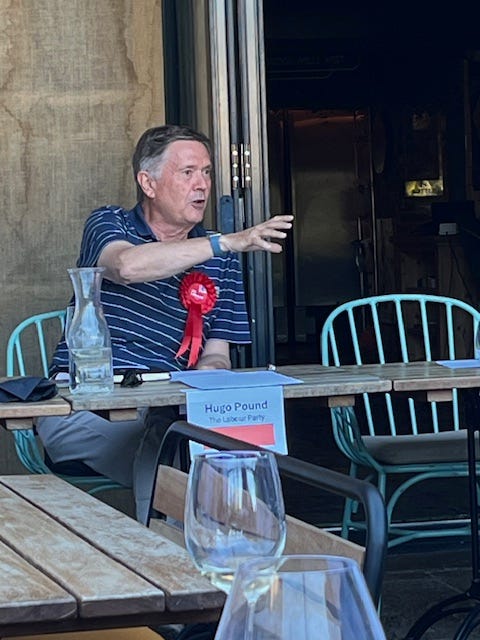
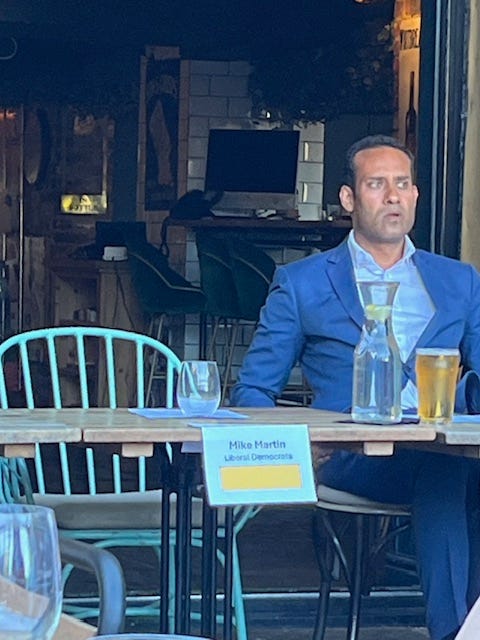
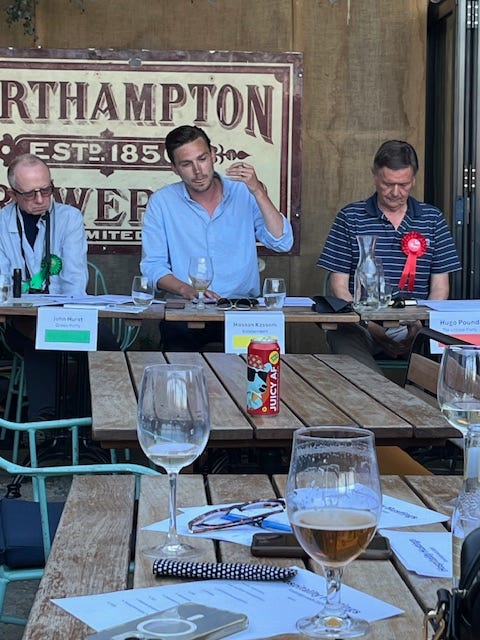
So it was with interest that I went to listen to the thoughts and wisdom (or so I thought) of seven candidates hoping to represent my constituency (political area) of Tunbridge Wells, in southeast England. The panel of hopefuls consisted of representatives of the six parties, including the Conservative Party (Neil Mahapatra), the Labour Party (Hugo Pound), the Independent (Hassan Kassem), the Green Party (John Hurst) and Reform UK (John Gager). The Liberal Democrat candidate, Mike Martin, was absent. Apparently, the LibDem strategy is to fill our letter boxes with vacuous political literature and avoid meeting the public – not a good look for a man with political ambitions. The lack of women on the panel was also dispiriting.
The evening's topic was hospitality, and the event was held in a pub with free beer and wine.
I'll keep the next bit brief. Maybe! The hospitality industry (pubs, restaurants, bars, wine bars, accommodation providers (hotels, B&Bs etc), recreation and entertainment venues (music venues, night clubs, national parks etc is huge and crucial to this country’s economy while employing hundreds of thousands of people. This two-hour debate focused on the issues faced by pubs, including business rates, staffing service charges and duty (tax). While the panellists boasted (apparently humorously ) about drinking in all the pubs in the town (or promising to if elected) while scoring low on a local knowledge quiz, what – in my opinion – they all failed to do was research. Questions seemed to come as a surprise. They were often avoided by responding by saying, 'That's a good but very technical question. I promise to have a look at it (if) I get elected’. Yeh,right.
If the candidates had just spent just a couple of hours researching, perhaps chatting to the staff in the pubs they claimed to frequent, their answers and competence wouldn't have been so harshly judged – despite only having a couple weeks to run a campaign. Promises included building affordable housing, a hospitality minister, creating a hospitality college (for students 16+ years) in the town and working to debunk the lazy stereotype of hospitality staff being unskilled - another function of the UK's dysfunctional 'Class system'. Watch this brilliant satirical sketch about this issue. Written in 1966 and performed by actors and comedians John Cleese, Ronnie Barker and Ronnie Corbett to understand my frustrations.
Malhotra, a business owner, was so rude about his party, the ruling Conservatives and their record over the past 14 years, that an audience member was forced to ask why he was standing for the party!
Manifestos are documents issued by campaigning political parties that highlight the aims and ambitions of a particular party. No one on the panel or the audience appeared to know whether it is a legally binding document – it's not. 'Who follows the law anyway,' one audience muttered loudly, to general agreement. How depressing.
Finally, Brexit was mentioned, but only briefly—'Brexit is a bear trap for the next government'—again, how depressing. It’s not done.
The hospitality industry deserves better.
One of many important national elections this year, the UK's will be held on Thursday, July 4, with results released the following day.
Ok, so it wasn't that brief, but I hope you understand :)
Prado comes alive with a Dutch still-life
Still Life with Citrons, Oranges and a Rose, the only signed and dated (1633) still life by Francisco de Zurbarán, will be on display in Room 10A at the Museo del Prado until June 30, on loan from the Norton Simon Museum, Pasadena, California. One of the key works in the genre's history in Europe, the painting's rediscovery in the 1920s advanced the process of reconstructing Zurbarán's work. It’s a beautiful, subtle work of a master painter.
The canvas is now on loan to the Prado within its “Invited Work” programme, which has been sponsored by the Fundación Amigos del Museo del Prado since 2010 with the aim of enhancing a visit to the Museum and establishing terms of comparison that allow for a reflection on works in the Prado's own collection.
Still Life with Citrons, Oranges and a Rose, the only signed and dated still life by Francisco de Zurbarán, will be on display in Room 10A at the Museo del Prado until June 30, on loan from the Norton Simon Museum. One of the key works in the history of the genre in Europe, the painting's rediscovery in the 1920s advanced the process of reconstructing Zurbarán's work.
The so-called lemons are actually citrons, distinguishable by the fruits’ knobbly skin.
The canvas is now on loan to the Prado within its “Invited Work” programme, which has been sponsored by the Fundación Amigos del Museo del Prado since 2010 with the aim of enhancing a visit to the Museum and establishing terms of comparison that allow for a reflection on works in the Prado's own collection.
Notes from an earlier exhibition of the painting at the Frick Collection noted that; although ‘the composition may have been designed to be a still life devoid of deeper meaning, the traditional associations of the individual objects encourage a symbolic reading: the citrons are a paschal fruit and denote faithfulness; the basket of oranges represents virginity; orange blossoms, fecundity; water, purity; and the rose is a symbol of divine love. The image has been construed as an homage to the Virgin; indeed, several of the objects depicted appear in other paintings by Zurbarán in which the Virgin is the central theme. Additionally, the structural division of the composition into three separate units might allude to the Trinity. No documentation exists, however, to confirm that these symbolic associations were intended by Zurbarán or understood as such by his contemporary audience’.
Still Life with Citrons, Oranges and a Rose, the only signed and dated still life by Francisco de Zurbarán, is on display at the Museo del Prado, until June 30, 2024.
The Lemon Grove's Substack newsletter
Give the gift of a 'The Lemon Grove' Substack newsletter to a friend, family member or yourself! Organise your gift through this link below … Thank you.
If you enjoyed this post, please click on the little ❤️ below ⬇️.
Bruce McMichael
Writer, Podcaster, Event Host & Cook, Lemonista
Website: www.thelemongrove.net
Facebook: LemonGroveSocial
Instagram: LemonGrovePics



